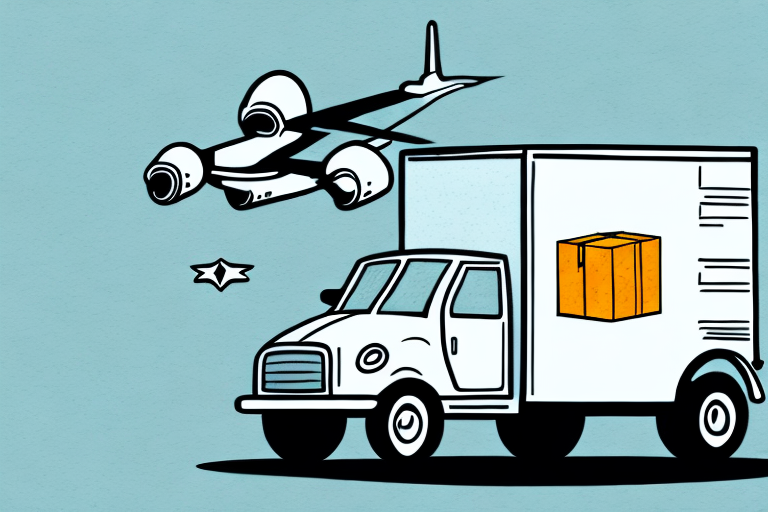The Evolution of Courier Services: A Brief History
Courier services have been an integral part of human communication and commerce for centuries. From ancient civilizations where runners and horseback riders transported messages and goods, to the sophisticated logistics networks of today, the courier industry has undergone significant transformations.
Early Beginnings
In ancient Egypt, Persia, and Rome, couriers were essential for conveying important messages across vast empires. These early couriers relied on foot, horses, and relays to ensure timely delivery.
Industrial Revolution and Beyond
The Industrial Revolution introduced advancements such as railways and motor vehicles, revolutionizing the speed and efficiency of courier services. By the 20th century, the establishment of national postal systems and private courier companies expanded the scope of delivery services.
Digital Age Transformation
With the advent of the internet and e-commerce in the late 20th and early 21st centuries, the demand for courier services surged. Companies like FedEx and DHL leveraged technology to offer real-time tracking and international shipping solutions, making courier services indispensable in the global economy.
Types of Courier Services Available Today
The courier industry offers a diverse range of services tailored to meet varying business and personal needs. Understanding these types can help individuals and businesses choose the right service for their specific requirements.
Same-Day and Overnight Delivery
For urgent shipments, same-day and overnight delivery services ensure that packages reach their destination within hours or by the next business day. These services are crucial for time-sensitive documents and high-priority shipments.
International Courier Services
International couriers facilitate global trade by providing reliable cross-border shipping solutions. Services include customs clearance, international tracking, and expedited shipping options to meet diverse international regulations and delivery timelines.
Specialized Courier Services
- Hazardous Materials: Specialized handling and shipping for dangerous goods, adhering to strict safety regulations.
- Medical Equipment: Secure and timely delivery of medical supplies and equipment, ensuring compliance with healthcare standards.
- Temperature-Controlled Shipments: Transporting perishable goods that require specific temperature conditions to maintain quality.
- White-Glove Delivery: Premium service involving careful handling, unpacking, and setup of high-value or delicate items.
The Importance of Couriers in Today's Economy
Courier services are the backbone of modern commerce, enabling seamless transactions and efficient supply chains. Their role has become even more critical in the digital age, where e-commerce continues to grow exponentially.
Economic Impact
The global courier market was valued at approximately $441 billion in 2021 and is projected to grow steadily, driven by increasing online sales and consumer expectations for fast delivery.
Supporting E-Commerce
With the rise of online shopping, couriers ensure that millions of packages are delivered daily. Efficient courier services enhance customer satisfaction, encouraging repeat business and fostering trust in online platforms.
Job Creation and Economic Growth
The courier industry creates millions of jobs worldwide, from delivery drivers and logistics managers to customer service representatives. These roles contribute to economic stability and growth by providing employment opportunities and supporting related industries.
Choosing a Reliable Courier Service Provider
Selecting the right courier service is crucial for businesses and individuals alike. A reliable provider ensures timely deliveries, package safety, and excellent customer service.
Track Record and Reputation
Researching a courier's history and customer reviews can provide insights into their reliability and service quality. Providers with consistent on-time delivery rates and positive feedback are generally more trustworthy.
Pricing Structure
Transparent and competitive pricing is essential. While cost is a significant factor, it's important to balance affordability with the quality of service to avoid unexpected expenses or compromised delivery standards.
Service Flexibility
A versatile courier service offers various delivery options, such as same-day, next-day, and weekend deliveries. This flexibility allows customers to meet specific timelines and adapt to changing needs.
Technological Capabilities
Advanced technology, including real-time tracking, automated sorting systems, and efficient logistics software, enhances the efficiency and transparency of courier services. Providers investing in technology are better equipped to handle high volumes and complex delivery requirements.
The Role of Technology in the Courier Industry
Technological advancements have revolutionized the courier industry, improving efficiency, accuracy, and customer satisfaction.
Real-Time Tracking Systems
GPS and RFID technologies enable real-time tracking of packages, providing customers with up-to-date information on their shipments' locations and estimated delivery times.
Automated Warehousing
Automation in warehouses, including robotic sorting and inventory management systems, increases processing speed and reduces human error, leading to more efficient operations.
Route Optimization
Advanced algorithms analyze traffic patterns, weather conditions, and delivery schedules to determine the most efficient routes, minimizing delivery times and reducing fuel consumption.
Emerging Technologies
- Drones: Delivering packages to remote or congested areas, reducing delivery times and operational costs.
- Autonomous Vehicles: Self-driving delivery trucks and vans that can operate without human intervention, enhancing scalability and efficiency.
According to a report by McKinsey & Company, automation could increase productivity in logistics by up to 25% over the next decade.
Safety and Challenges in the Courier Industry
The courier industry faces various challenges that impact delivery efficiency and package safety. Addressing these challenges is essential for maintaining service quality and customer trust.
Common Challenges
- Road Congestion: Traffic delays can significantly impact delivery schedules, especially in urban areas.
- Customs and Regulatory Issues: International deliveries must navigate complex customs procedures and varying regulations across countries.
- Inclement Weather: Adverse weather conditions can disrupt transportation and delay deliveries.
- Rising Fuel Costs: Increasing fuel prices affect operational costs and delivery pricing.
Safety Measures
To protect packages and ensure timely deliveries, couriers implement rigorous safety protocols:
- Tamper-Proof Packaging: Ensuring that packages are secure and free from unauthorized access during transit.
- Advanced Security Systems: Utilizing surveillance cameras and biometric authentication to enhance package security.
- Employee Training: Regular training programs for couriers on handling hazardous materials and adhering to safety protocols.
Implementing these measures not only safeguards packages but also builds customer confidence in courier services.
Future Trends in the Courier Industry
The courier industry is poised for significant changes in the coming years, driven by technological advancements and evolving consumer expectations.
Growth of E-Commerce
The continuous expansion of e-commerce is expected to drive demand for courier services, with online retailers seeking faster and more reliable delivery options to satisfy customer expectations.
Increased Automation and Artificial Intelligence
Automation and AI will play crucial roles in optimizing logistics, from automated warehousing to predictive analytics for demand forecasting. These technologies will enhance efficiency and reduce operational costs.
Sustainable Logistics
As environmental concerns rise, courier companies are adopting sustainable practices, such as electric delivery vehicles, eco-friendly packaging materials, and optimized routing to reduce carbon footprints.
Innovative Delivery Technologies
- Drones and Autonomous Vehicles: Expanding their use in delivery operations to reach hard-to-access areas and reduce delivery times.
- Smart Lockers: Providing secure, self-service pickup points for packages, enhancing convenience for customers.
According to a Forbes article, the integration of these technologies is expected to revolutionize the courier industry, making deliveries faster, more efficient, and environmentally friendly.








